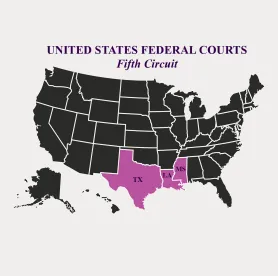On December 18th, 2019, the Fifth Circuit Court of Appeals released a long-awaited decision on a significant challenge to the Affordable Care Act (“ACA”), affirming a lower-court ruling that we discussed in a previous post. In the lower-court ruling, the Federal District Court judge determined that the ACA’s individual mandate, which was reduced to $0 as a result of the Tax Cuts and Jobs Act of 2017, is no longer considered a tax and therefore Congress no longer has constitutional authority to enforce the mandate. Going one step further, the Federal District Court judge found that the individual mandate is not severable from the rest of the ACA, and thus held that the whole law is unconstitutional.
In a move that surprised both liberals and conservatives alike, the Fifth Circuit did not explicitly hold the individual mandate as severable or inseverable, despite upholding the central finding of the District Court regarding the enforceability of the individual mandate. Instead, it remanded the case back to the same District Court judge who will likely, and predictably, come to the same conclusion telegraphed in his initial opinion.
In a December 19,2019 article published in The Atlantic entitled, “A Case That Should Have Been Laughed Out of Court May Kill Obamacare,” Michigan law professor and health law expert Nicholas Bagley called the entire case a “partisan stunt that’s been roundly condemned by lawyers on both sides of the aisle,” and an “embarrassment” that “should’ve been laughed out of contention long ago.” Even known conservative critics, such as Jonathan H. Alder, have argued that the decision on the individual mandate should not result in the ACA as a whole being held unconstitutional. In his December 12, 2019 commentary, “BREAKING: Fifth Circuit Declares Individual Mandate Unconstitutional, Punts on Whether Rest of ACA Must Fall” (Reason, December 12, 2019), Adler remarked that the “[Fifth Circuit] opinion [was] quite wrong,” and noted that he would “conclude that the coverage requirement is constitutional…and entirely severable form the remainder of the Affordable Care Act.”
Some commentators perceive this decision as providing political cover to the White House and Republicans in Congress, who have been unable to present a politically sustainable alternative to the ACA since the law’s passage in 2010. Because the Fifth Circuit Court of Appeals was unwilling to rule on the ACA severability question, the argument goes, Republicans will not need to confront their lack of a credible replacement to the ACA as the presidential elections ramp up. Moreover, if the Supreme Court waits to hear the case until the lower courts reach a conclusion on the severability question, not only will the decision be prolonged, but President Trump may have the opportunity to replace the dwindling liberal beachhead with conservative judges that will uphold the decision.
Moving forward, we are likely to see states intervene. In fact, California Attorney General Xavier Becerra has already stated his intention to file a petition for certiorari with the Supreme Court. Other states are likely to respond in suit, joining either side in appeal or support. As a result, we are likely to see passionate amicus briefs on either side.
While in the short term the status quo remains the same, the future is fraught with uncertainty as we wait for any definitive ruling to be issued on the constitutionality and enforceability of the ACA in its entirety. If the ACA is held unconstitutional as a whole, the decision will mean much more than simply removing the already inconsequential individual mandate. Perhaps the greatest impact would be felt by the tens of millions of Americans who have gained access to coverage through the ACA’s Medicaid expansion. Additionally, the protection for patients with pre-existing conditions would be wiped out. As conjectured in a New York Times article from earlier this year, the nullification of the ACA could also lead to exorbitant cost increases in health insurance overall, as millions of healthy individuals drop their health care coverage, resulting in a less healthy covered population and attendant increases in premiums. Adding to the loss in coverage would be the portion of the ACA that currently allows children to stay on their parents’ health insurance until they are 26, rather than becoming ineligible at 18.
Beyond the human impact, the nonpartisan Committee for a Responsible Federal Budget released an estimate that an ACA repeal would result in approximately $350 billion of additional Medicare spending. As noted above, invalidation of the ACA would overturn Medicaid expansion in the 31 states (plus Washington D.C.) that currently participate in the expansion. This will not only result in an increase of uninsured individuals, but states could lose up to $135 billion in federal funding. For health insurers that specialize in Medicaid, a decrease in enrollment would also negatively impact business. Overall, major industry stakeholders including the American Medical Association and the American Hospital Association have already expressed their criticism of the decision and the uncertainty that comes with it.





 />i
/>i

